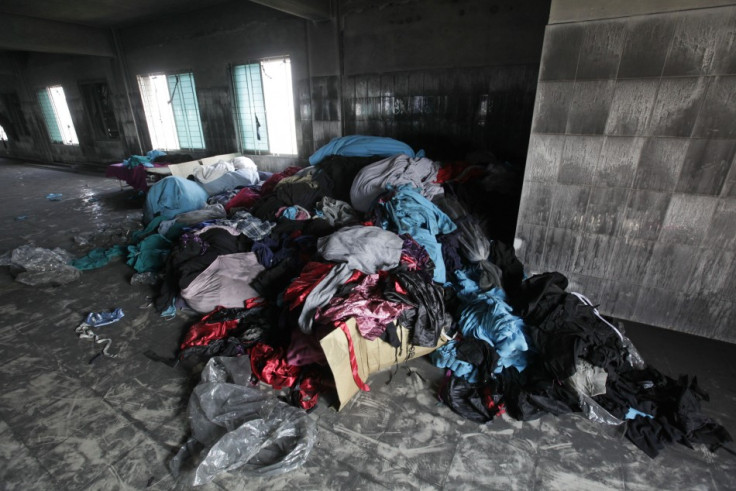Bangladesh Blaze Factory Tazreen Fashions Lost Fire Certificate in June

The Bangladeshi garment factory where 111 employees died in the country's worst-ever industrial blaze was operating without a fire safety certificate at the time of the disaster, a fire official has revealed.
The official said that the certificate for the Tazreen Fashions factory expired on June 30, "and officials refused to renew it because of a lack of proper safety arrangements."
Although the official said he could not elaborate further because of the sensitive nature of the case, he did add: "These factories should be closed, but it is not an easy task.
"We need to follow a protracted legal battle, always there is pressure because the owners are influential. They can manage everything,"
The Tazreen factory did not have any fire exits for its 1,400 workers. A leading labour rights NGO told IBTimes UK that the death toll of 111 would have been significantly lower if safety measures were upheld by retail companies in the country.
Garment factories in Bangladesh are often located in unsafe buildings that were originally constructed for residential or commercial purposes.
"The majority of factory fires in Bangladesh are caused by electrical circuit shortage," Liana Foxvog, of the International Labor Rights Forum (ILRF) told IBTimes UK. "The chaos that follows the fire is caused by the fact that workers don't receive proper fire emergency plans, and exit doors and windows are usually blocked. They are not properly trained."
The owner of the factory also admitted that he had expanded the facility illegally to eight storeys, despite having permission for only three floors. He was building a ninth at the time of the fire.
However Dealwar Hossain refused to explain to news agencies why he had decided to add five floors to the factory illegally.
"My mental condition is not good, I am under pressure, please don't ask me anything else," he said.
The government body that monitors building codes in Dhaka said that it was aware of violations but chose to do nothing rather than confront the powerful industry.
"I must say we have our weaknesses. We could not do that. Not only Tazreen, there are hundreds more buildings. That's the truth," an official at the Capital development authority said.
Bangladesh is the world's biggest exporter of clothing after China, with 4,500 garment factories. According to ILRF research, since 2005 more than 700 garment workers have died as a result of unsafe buildings in the country. Garments make up to 80 percent of Bangladesh's $24bn annual exports.
Three supervisors at the Tazreen factory were arrested under accusations that they stopped workers from leaving the building with the excuse that it was just a drill and they had nothing to worry about.
US company Walmart, the world's biggest retailer, said one of its suppliers had subcontracted work to the charred factory without authorisation and would no longer be used. Another American retailer, Sears Holdings Corp, said its clothing was not meant to be made in that textile factory.
Garments intended for European chain C&A, Hong Kong's Li & Fung and the clothing label run by US rapper and actor Sean 'Diddy' Combs were all found in the factory.
© Copyright IBTimes 2025. All rights reserved.






















